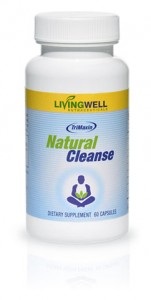 Beneficial bacteria known as probiotics are most often discussed in relation to your digestive health, but they do so much more than enhance digestion.
Beneficial bacteria known as probiotics are most often discussed in relation to your digestive health, but they do so much more than enhance digestion.
Your body has about 10 times more bacteria than cells, and those bacteria are part of your “microbiome.”
Your microbiome is composed of trillions of microbes, which include not only bacteria but also fungi, viruses and other organisms that are too small to be seen with the naked eye.
Do you want to know something astonishing?
Each of your microbial cells contains a unique set of genes, which helps to explain why your microbiome plays such an integral role in your health.
In fact, your microbiome is so important that the American Academy of Microbioloy (AAM) believes it is “reasonable to characterize the microbiome as a newly recognized organ, with a great range of metabolic activities.”[i]
Your microbiome is a dynamic community that changes in response to your diet and other environmental exposure.
Generally speaking, you are primarily a microbial being. When you begin to understand this, it becomes quite easy to understand how probiotics might influence an aspect of your health like blood pressure, which might, on the surface, appear to be unrelated. AAM reported:[ii]
“A corollary of the fact that human health depends on maintaining a good relationship with a complex set of microbes is the recognition that microbes can contribute to disease in previously unexpected ways. Many human diseases in which microbes were not previously thought to play a role have recently been shown, largely in animal models, to be at least partially influenced by the microbiome.
Diseases as different as asthma, diabetes, obesity, cancer, and heart disease have been shown to be influenced by the microbiome. In mice, there are even intriguing, if very preliminary, indications that the microbiome may play a role in conditions like anxiety and insomnia.”
How Do Probiotics Influence Your Blood Pressure?
A new review of nine studies found that probiotics may help to lower blood pressure, especially among people with hypertension.[iii]
Specifically, compared to those who didn’t consume probiotics, those who consumed probiotics lowered systolic blood pressure (the top number) by an average 3.56 millimeters of mercury (mm Hg) and diastolic blood pressure (the lower number) by an average 2.38 mm Hg.[iv] The research further revealed:[v]
- The beneficial effect on blood pressure only occurred in those who consumed probiotics for eight weeks or more
- Diastolic blood pressure levels decreased the most among those whose blood pressure was elevated (equal to or greater than 130/85)
- Multiple-strain probiotics lowered blood pressure more than single-strain probiotics
- Only probiotics with 100 billion colony-forming units (CFUs) or more resulted in the beneficial effects on blood pressure
The study’s lead author noted:[vi]
“The small collection of studies we looked at suggest regular consumption of probiotics can be part of a healthy lifestyle to help reduce high blood pressure, as well as maintain healthy blood pressure levels … This includes probiotics in yogurt, fermented and sour milk [kefir] and cheese, and probiotic supplements.”
What Else are Probiotics Good For?
These good ‘bugs’ may benefit your blood pressure and your digestion … and what else? Quite a bit, actually, as they influence the health of your microbiome, which, in turn, impacts your health overall. For instance:
- Your Brain: Women who regularly ate beneficial bacteria via yogurt had altered brain function, with the probiotics appearing to influence multiple areas of the brain, including those involved in sensory processing, cognition and emotion.[vii]
- Your Mood: Probiotics have also been shown to normalize anxiety-like behavior in mice, as well as influence GABA, an inhibitory neurotransmitter in your brain. By activating GABA, which has a calming effect, as well as lowering stress hormones like corticosterone, probiotics have been found to potentially improve both anxiety and depression.
- Colds and Other Infections: Probiotics have been found to help prevent upper respiratory tract infections, including the common cold, as well as possibly reduce the prescription of antibiotics.[viii]
- Your Weight: Women who took a probiotic supplement along with following a weight-loss diet lost more weight than women who did not (9.7 pounds versus 5.7 pounds, respectively). Woman taking probiotics also continued to lose another 1.8 pounds after the 12-week maintenance period, as well as reduced intestinal bacteria related to obesity.[ix]
What are The Best Probiotics?
 You may eat a yogurt here and there, but unless you’re consuming decent quantities of traditionally fermented foods (such as homemade sauerkraut or kefir) daily, you’re most likely not replenishing your body’s supply.
You may eat a yogurt here and there, but unless you’re consuming decent quantities of traditionally fermented foods (such as homemade sauerkraut or kefir) daily, you’re most likely not replenishing your body’s supply.
Probiotic supplements are, fortunately, widely available, although there are key traits you should look for to find an effective brand. After much research, we chose a multiple-strain Danisco® Probiotic Blend, which contains both bifidobacterium and acidophilus made by one of the most trusted companies in the field, to be a part of our 30-day colon flush and revitalization program, Natural Cleanse.
This patented blend of essential probiotics has been clinically proven to improve digestive function, and when combined with the other herbal remedies in Natural Cleanse — like milk thistle extract, buckthorn bark, rhubarb root and cloves — it will help to flush your colon clear of toxic build-up while soothing inflammation of your GI tract and replenishing the good bacteria in your gut to rebalance your vital gut microflora. If you’re ready to get healthier, you can try Natural Cleanse risk-free for 90 days.
[i] American Academy of Microbiology Human Microbiome
[ii] American Academy of Microbiology Human Microbiome
[iii] Hypertension July 21, 2014
[iv] Science Daily July 14, 2014
[v] Science Daily July 14, 2014
[vi] Science Daily July 14, 2014
[vii] Gastroenterology. 2013 Jun;144(7):1394-1401.e4.

